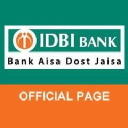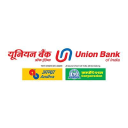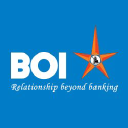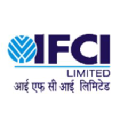IDBI.NS

IDBI Bank Limited
IDBI.NS
(3.0)77,06 INR
1.69% ROA
12.42% ROE
14.12x PER
888.363.288.000,00 INR
39.34% DER
1.82% Yield
30.31% NPM
IDBI Bank Limited Stock Analysis
IDBI Bank Limited Fundamental Analysis
Fundamental analysis in stock investing is like studying the foundation of a house before buying it. It involves looking at a company's financial health, like its earnings, assets, and debts, to determine if it's a good investment based on its fundamental strength and potential for growth.
| # | Analysis | Rating |
|---|---|---|
| 1 |
DER
The stock has a minimal amount of debt (43%) relative to its ownership, showcasing a strong financial position and lower risk for investors. |
|
| 2 |
Revenue Growth
With a track record of consistent revenue growth in the past five years, this company presents a compelling opportunity. |
|
| 3 |
Net Profit Growth
With a track record of consistent net profit growth over the past five years, this company presents a compelling investment opportunity due to its strong financial performance. |
|
| 4 |
ROE
ROE in an average range (9.45%) suggests satisfactory profitability and decent utilization of shareholders' equity. |
|
| 5 |
ROA
The stock's ROA (1.29%) indicates that it's doing well in making money from the things it owns. This makes it a good option to invest and make consistent profits. |
|
| 6 |
PBV
The stock's PBV ratio (1.4x) indicates a justifiable valuation, presenting a compelling choice for investors seeking reasonable returns. |
|
| 7 |
Assets Growth
This company's revenue has shown remarkable growth over the past three years, making it an excellent choice for seeking a consistently prosperous investment. |
|
| 8 |
Graham Number
The company's Graham number suggests that its stock price is underestimated, implying that it may present a compelling investment opportunity. |
|
| 9 |
Buffet Intrinsic Value
The company's stock seems undervalued (266) by Warren Buffett's formula, indicating a promising investment opportunity as its intrinsic value exceeds the market price. |
|
| 10 |
Dividend Growth
The company's dividend growth has shown no improvement in the past three years, making it a less attractive investment option for those seeking increasing returns. |
|
| 11 |
Dividend
Investors should be cautious as the company hasn't distributed dividends in the last three years, possibly indicating financial challenges. |
IDBI Bank Limited Technical Analysis
Technical analysis in stock investing is like reading the patterns on a weather map to predict future weather conditions. It involves studying past stock price movements and trading volumes to make predictions about where a stock's price might go next, without necessarily looking at the company's financial health.
| # | Analysis | Recommendation |
|---|---|---|
| 1 | Awesome Oscillator | Hold |
| 2 | MACD | Sell |
| 3 | RSI | Hold |
| 4 | Stoch RSI | Sell |
IDBI Bank Limited Price Chart
Financial Statements
Financial statements are like report cards for companies. They show how much money a company makes (income statement), what it owns and owes (balance sheet), and where it spends its money (cash flow statement), helping stock investors understand if a company is healthy and worth investing in.
Income Statements
An income statement for a company is like a scoreboard for its profits and losses. It shows how much money the company made (revenue) and how much it spent to make that money (expenses), helping stock investors see if a company is making a profit or not.
Revenue in stock investing is the total amount of money a company earns from its sales, and it's a key factor that investors consider to assess a company's financial performance and growth potential.
| Year | Revenue | Growth |
|---|---|---|
| 2004 | 8.427.209.000 | |
| 2005 | 16.996.592.000 | 50.42% |
| 2006 | 16.864.549.000 | -0.78% |
| 2007 | 24.165.747.000 | 30.21% |
| 2008 | 29.086.498.000 | 16.92% |
| 2009 | 46.717.648.000 | 37.74% |
| 2010 | 65.679.575.000 | 28.87% |
| 2011 | 65.854.508.000 | 0.27% |
| 2012 | 84.277.798.000 | 21.86% |
| 2013 | 89.998.620.000 | 6.36% |
| 2014 | 98.583.280.000 | 8.71% |
| 2015 | 94.690.549.000 | -4.11% |
| 2016 | 97.864.840.000 | 3.24% |
| 2017 | 121.695.100.000 | 19.58% |
| 2018 | 90.772.428.000 | -34.07% |
| 2019 | 108.202.232.000 | 16.11% |
| 2020 | 128.482.756.000 | 15.78% |
| 2021 | 132.673.386.000 | 3.16% |
| 2022 | 160.364.600.000 | 17.27% |
| 2023 | 163.903.200.000 | 2.16% |
| 2023 | 181.440.600.000 | 9.67% |
| 2024 | 301.086.400.000 | 39.74% |
Research and Development Expenses are the costs a company incurs to create and improve its products or services, which can be important for investors to evaluate a company's innovation and potential for future growth.
| Year | Research and Development Expenses | Growth |
|---|---|---|
| 2004 | 0 | |
| 2005 | 0 | 0% |
| 2006 | 0 | 0% |
| 2007 | 0 | 0% |
| 2008 | 0 | 0% |
| 2009 | 0 | 0% |
| 2010 | 0 | 0% |
| 2011 | 0 | 0% |
| 2012 | 0 | 0% |
| 2013 | 0 | 0% |
| 2014 | 0 | 0% |
| 2015 | 0 | 0% |
| 2016 | 0 | 0% |
| 2017 | 0 | 0% |
| 2018 | 0 | 0% |
| 2019 | 0 | 0% |
| 2020 | 0 | 0% |
| 2021 | 0 | 0% |
| 2022 | 0 | 0% |
| 2023 | 0 | 0% |
| 2023 | 0 | 0% |
| 2024 | 0 | 0% |
General and Administrative Expenses are the costs a company incurs to run its day-to-day operations, such as office rent, salaries, and utilities, which investors consider to understand a company's overall efficiency and management effectiveness.
| Year | General and Administrative Expenses | Growth |
|---|---|---|
| 2004 | 0 | |
| 2005 | 0 | 0% |
| 2006 | 0 | 0% |
| 2007 | 0 | 0% |
| 2008 | 4.519.865.000 | 100% |
| 2009 | 0 | 0% |
| 2010 | 0 | 0% |
| 2011 | 160.017.000 | 100% |
| 2012 | 239.972.000 | 33.32% |
| 2013 | 207.801.000 | -15.48% |
| 2014 | 260.254.000 | 20.15% |
| 2015 | 276.513.000 | 5.88% |
| 2016 | 308.169.000 | 10.27% |
| 2017 | 431.876.000 | 28.64% |
| 2018 | 850.696.000 | 49.23% |
| 2019 | 389.844.000 | -118.21% |
| 2020 | 529.894.000 | 26.43% |
| 2021 | 467.263.000 | -13.4% |
| 2022 | 522.493.000 | 10.57% |
| 2023 | 0 | 0% |
| 2023 | 632.080.000 | 100% |
| 2024 | 0 | 0% |
EBITDA stands for Earnings Before Interest, Taxes, Depreciation, and Amortization. It is a measure that helps stock investors analyze a company's profitability by looking at its earnings without considering certain expenses. This helps to get a clearer picture of the company's financial performance and its ability to generate cash flow.
| Year | EBITDA | Growth |
|---|---|---|
| 2004 | 29.123.150.000 | |
| 2005 | 58.025.186.000 | 49.81% |
| 2006 | 65.477.406.000 | 11.38% |
| 2007 | 83.845.503.000 | 21.91% |
| 2008 | 112.671.823.000 | 25.58% |
| 2009 | 142.607.154.000 | 20.99% |
| 2010 | 159.642.463.000 | 10.67% |
| 2011 | 209.409.856.000 | 23.77% |
| 2012 | 216.913.478.000 | 3.46% |
| 2013 | 218.264.843.000 | 0.62% |
| 2014 | 234.697.602.000 | 7% |
| 2015 | 185.579.780.000 | -26.47% |
| 2016 | 173.657.632.000 | -6.87% |
| 2017 | 96.206.116.000 | -80.51% |
| 2018 | -149.867.554.000 | 164.19% |
| 2019 | -128.352.369.000 | -16.76% |
| 2020 | 15.139.686.000 | 947.79% |
| 2021 | 25.336.670.000 | 40.25% |
| 2022 | 37.060.593.000 | 31.63% |
| 2023 | 95.564.400.000 | 61.22% |
| 2023 | 89.354.700.000 | -6.95% |
| 2024 | -193.200.000 | 46349.84% |
Gross profit is the money a company makes from selling its products or services after subtracting the cost of producing or providing them, and it is an important measure for investors to understand a company's profitability.
| Year | Gross Profit | Growth |
|---|---|---|
| 2004 | 8.427.209.000 | |
| 2005 | 16.996.592.000 | 50.42% |
| 2006 | 16.864.549.000 | -0.78% |
| 2007 | 24.165.747.000 | 30.21% |
| 2008 | 29.086.498.000 | 16.92% |
| 2009 | 46.717.648.000 | 37.74% |
| 2010 | 65.679.575.000 | 28.87% |
| 2011 | 65.854.508.000 | 0.27% |
| 2012 | 84.277.798.000 | 21.86% |
| 2013 | 89.998.620.000 | 6.36% |
| 2014 | 98.583.280.000 | 8.71% |
| 2015 | 94.690.549.000 | -4.11% |
| 2016 | 97.864.840.000 | 3.24% |
| 2017 | 121.695.100.000 | 19.58% |
| 2018 | 90.772.428.000 | -34.07% |
| 2019 | 108.202.232.000 | 16.11% |
| 2020 | 128.482.756.000 | 15.78% |
| 2021 | 132.673.386.000 | 3.16% |
| 2022 | 160.364.600.000 | 17.27% |
| 2023 | 163.903.200.000 | 2.16% |
| 2023 | 181.440.600.000 | 9.67% |
| 2024 | 301.086.400.000 | 39.74% |
Net income in stock investing is like the money a company actually gets to keep as profit after paying all its bills, and it's an important measure to understand how well a company is doing financially.
| Year | Net Profit | Growth |
|---|---|---|
| 2004 | 3.185.742.000 | |
| 2005 | 5.439.163.000 | 41.43% |
| 2006 | 5.883.149.000 | 7.55% |
| 2007 | 7.465.915.000 | 21.2% |
| 2008 | 7.665.359.000 | 2.6% |
| 2009 | 10.205.254.000 | 24.89% |
| 2010 | 15.635.098.000 | 34.73% |
| 2011 | 20.024.982.000 | 21.92% |
| 2012 | 18.889.048.000 | -6.01% |
| 2013 | 11.517.351.000 | -64.01% |
| 2014 | 9.417.988.000 | -22.29% |
| 2015 | -35.908.153.000 | 126.23% |
| 2016 | -50.159.048.000 | 28.41% |
| 2017 | -81.323.999.000 | 38.32% |
| 2018 | -149.867.554.000 | 45.74% |
| 2019 | -128.352.369.000 | -16.76% |
| 2020 | 15.139.686.000 | 947.79% |
| 2021 | 25.336.670.000 | 40.25% |
| 2022 | 37.060.593.000 | 31.63% |
| 2023 | 55.416.000.000 | 33.12% |
| 2023 | 57.881.117.000 | 4.26% |
| 2024 | 69.372.800.000 | 16.57% |
EPS, or earnings per share, is a measure that shows how much profit a company has earned for each outstanding share of its stock, and it is important for stock investors as it helps understand the profitability of a company and compare it with other companies in the market.
| Year | Earning per Share (EPS) | Growth |
|---|---|---|
| 2004 | 4 | |
| 2005 | 8 | 42.86% |
| 2006 | 8 | 12.5% |
| 2007 | 10 | 20% |
| 2008 | 11 | 0% |
| 2009 | 14 | 28.57% |
| 2010 | 17 | 17.65% |
| 2011 | 20 | 15% |
| 2012 | 15 | -42.86% |
| 2013 | 8 | -75% |
| 2014 | 6 | -60% |
| 2015 | -3 | 266.67% |
| 2016 | -5 | 25% |
| 2017 | -8 | 42.86% |
| 2018 | -14 | 50% |
| 2019 | -12 | -16.67% |
| 2020 | 1 | 1300% |
| 2021 | 2 | 50% |
| 2022 | 3 | 33.33% |
| 2023 | 5 | 40% |
| 2023 | 5 | 0% |
| 2024 | 6 | 16.67% |
Cashflow Statements
Cashflow statements show the movement of money in and out of a company, helping stock investors understand how much money a company makes and spends. By examining cashflow statements, investors can assess if a company is generating enough cash to pay its bills, invest in growth, and provide returns to stockholders.
Free cash flow is the leftover cash that a company generates after covering its operating expenses and capital expenditures, which is important for stock investors as it shows how much money a company has available to invest in growth, pay dividends, or reduce debt.
| Year | Free Cashflow | Growth |
|---|---|---|
| 2004 | 25.076.455.000 | |
| 2005 | -1.639.205.000 | 1629.79% |
| 2006 | 4.797.060.000 | 134.17% |
| 2007 | 16.465.444.000 | 70.87% |
| 2008 | 27.968.536.000 | 41.13% |
| 2009 | 35.278.577.000 | 20.72% |
| 2010 | 32.884.773.000 | -7.28% |
| 2011 | -34.044.813.000 | 196.59% |
| 2012 | -4.216.757.000 | -707.37% |
| 2013 | -22.205.972.000 | 81.01% |
| 2014 | -22.622.054.000 | 1.84% |
| 2015 | -12.816.263.000 | -76.51% |
| 2016 | 75.357.556.000 | 117.01% |
| 2017 | -121.504.402.000 | 162.02% |
| 2018 | -342.147.968.000 | 64.49% |
| 2019 | -874.913.000 | -39006.51% |
| 2020 | 33.847.941.000 | 102.58% |
| 2021 | -41.268.688.000 | 182.02% |
| 2022 | -28.954.000.000 | -42.53% |
| 2023 | 0 | 0% |
| 2023 | -14.478.500.000 | 100% |
| 2024 | 0 | 0% |
Operating cash flow represents the cash generated or consumed by a company's day-to-day operations, excluding external investing or financing activities, and is crucial for stock investors as it shows how much cash a company is generating from its core business operations.
| Year | Operating Cashflow | Growth |
|---|---|---|
| 2004 | 25.076.455.000 | |
| 2005 | -1.052.389.000 | 2482.81% |
| 2006 | 4.797.060.000 | 121.94% |
| 2007 | 17.649.682.000 | 72.82% |
| 2008 | 29.486.082.000 | 40.14% |
| 2009 | 38.444.737.000 | 23.3% |
| 2010 | 35.097.569.000 | -9.54% |
| 2011 | -32.448.960.000 | 208.16% |
| 2012 | -2.989.695.000 | -985.36% |
| 2013 | -19.980.616.000 | 85.04% |
| 2014 | -19.905.804.000 | -0.38% |
| 2015 | -5.667.730.000 | -251.21% |
| 2016 | 79.998.952.000 | 107.08% |
| 2017 | -121.504.402.000 | 165.84% |
| 2018 | -342.147.968.000 | 64.49% |
| 2019 | 2.084.819.000 | 16511.4% |
| 2020 | 34.434.540.000 | 93.95% |
| 2021 | -39.322.142.000 | 187.57% |
| 2022 | -26.009.500.000 | -51.18% |
| 2023 | 0 | 0% |
| 2023 | -12.259.000.000 | 100% |
| 2024 | 0 | 0% |
Capex, short for capital expenditures, refers to the money a company spends on acquiring or upgrading tangible assets like buildings, equipment, or technology, which is important for stock investors as it indicates how much a company is investing in its infrastructure to support future growth and profitability.
| Year | Capital Expenditure | Growth |
|---|---|---|
| 2004 | 0 | |
| 2005 | 586.816.000 | 100% |
| 2006 | 0 | 0% |
| 2007 | 1.184.238.000 | 100% |
| 2008 | 1.517.546.000 | 21.96% |
| 2009 | 3.166.160.000 | 52.07% |
| 2010 | 2.212.796.000 | -43.08% |
| 2011 | 1.595.853.000 | -38.66% |
| 2012 | 1.227.062.000 | -30.05% |
| 2013 | 2.225.356.000 | 44.86% |
| 2014 | 2.716.250.000 | 18.07% |
| 2015 | 7.148.533.000 | 62% |
| 2016 | 4.641.396.000 | -54.02% |
| 2017 | 0 | 0% |
| 2018 | 0 | 0% |
| 2019 | 2.959.732.000 | 100% |
| 2020 | 586.599.000 | -404.56% |
| 2021 | 1.946.546.000 | 69.86% |
| 2022 | 2.944.500.000 | 33.89% |
| 2023 | 0 | 0% |
| 2023 | 2.219.500.000 | 100% |
| 2024 | 0 | 0% |
Balance Sheet
Balance sheets provide a snapshot of a company's financial health and its assets (such as cash, inventory, and property) and liabilities (like debts and obligations) at a specific point in time. For stock investors, balance sheets help assess the company's overall worth and evaluate its ability to meet financial obligations and support future growth.
Equity refers to the ownership interest or stake that shareholders have in a company, representing their claim on its assets and earnings after all debts and liabilities are paid.
| Year | Equity | Growth |
|---|---|---|
| 2004 | 62.362.022.000 | |
| 2005 | 66.590.079.000 | 6.35% |
| 2006 | 85.263.592.000 | 21.9% |
| 2007 | 90.597.683.000 | 5.89% |
| 2008 | 9.561.857.000 | -847.49% |
| 2009 | 102.910.500.000 | 90.71% |
| 2010 | 145.689.774.000 | 29.36% |
| 2011 | 194.210.407.000 | 24.98% |
| 2012 | 212.384.168.000 | 8.56% |
| 2013 | 236.758.235.000 | 10.29% |
| 2014 | 244.260.915.000 | 3.07% |
| 2015 | 281.198.915.000 | 13.14% |
| 2016 | 233.328.787.000 | -20.52% |
| 2017 | 219.939.131.000 | -6.09% |
| 2018 | 384.436.873.000 | 42.79% |
| 2019 | 349.393.041.000 | -10.03% |
| 2020 | 377.410.208.000 | 7.42% |
| 2021 | 426.998.932.000 | 11.61% |
| 2022 | 464.577.200.000 | 8.09% |
| 2023 | 512.259.200.000 | 9.31% |
| 2023 | 480.434.300.000 | -6.62% |
| 2024 | 544.601.800.000 | 11.78% |
Assets represent the valuable resources that a company owns, such as cash, inventory, property, and equipment, and understanding a company's assets helps investors assess its value and potential for generating future profits.
| Year | Assets | Growth |
|---|---|---|
| 2004 | 829.994.411.000 | |
| 2005 | 903.022.435.000 | 8.09% |
| 2006 | 1.059.404.909.000 | 14.76% |
| 2007 | 1.325.468.908.000 | 20.07% |
| 2008 | 1.740.719.855.000 | 23.86% |
| 2009 | 2.361.021.752.000 | 26.27% |
| 2010 | 2.535.576.031.000 | 6.88% |
| 2011 | 2.906.966.816.000 | 12.78% |
| 2012 | 3.226.661.965.000 | 9.91% |
| 2013 | 3.289.582.303.000 | 1.91% |
| 2014 | 3.559.308.964.000 | 7.58% |
| 2015 | 3.742.570.183.000 | 4.9% |
| 2016 | 3.623.813.865.000 | -3.28% |
| 2017 | 3.511.367.775.000 | -3.2% |
| 2018 | 3.211.113.980.000 | -9.35% |
| 2019 | 3.007.133.325.000 | -6.78% |
| 2020 | 2.986.528.360.000 | -0.69% |
| 2021 | 3.023.562.566.000 | 1.22% |
| 2022 | 3.314.977.000.000 | 8.79% |
| 2023 | 3.642.715.000.000 | 9% |
| 2023 | 3.352.496.000.000 | -8.66% |
| 2024 | 3.721.195.400.000 | 9.91% |
Liabilities refer to the financial obligations or debts that a company owes to creditors or external parties, and understanding a company's liabilities is important for investors as it helps assess the company's financial risk and ability to meet its obligations.
| Year | Liabilities | Growth |
|---|---|---|
| 2004 | 767.632.389.000 | |
| 2005 | 836.432.356.000 | 8.23% |
| 2006 | 974.141.317.000 | 14.14% |
| 2007 | 1.234.871.225.000 | 21.11% |
| 2008 | 1.731.157.998.000 | 28.67% |
| 2009 | 2.258.111.252.000 | 23.34% |
| 2010 | 2.389.886.257.000 | 5.51% |
| 2011 | 2.712.756.409.000 | 11.9% |
| 2012 | 3.014.277.797.000 | 10% |
| 2013 | 3.052.824.068.000 | 1.26% |
| 2014 | 3.315.048.049.000 | 7.91% |
| 2015 | 3.461.371.268.000 | 4.23% |
| 2016 | 3.390.485.078.000 | -2.09% |
| 2017 | 3.291.428.644.000 | -3.01% |
| 2018 | 2.826.677.107.000 | -16.44% |
| 2019 | 2.657.740.284.000 | -6.36% |
| 2020 | 2.609.118.152.000 | -1.86% |
| 2021 | 2.596.563.634.000 | -0.48% |
| 2022 | 2.850.399.800.000 | 8.91% |
| 2023 | 170.827.000.000 | -1568.59% |
| 2023 | 206.508.500.000 | 17.28% |
| 2024 | 3.176.593.600.000 | 93.5% |
IDBI Bank Limited Financial Ratio (TTM)
Valuation Metrics
- Revenue per Share
- 19.31
- Net Income per Share
- 5.85
- Price to Earning Ratio
- 14.12x
- Price To Sales Ratio
- 4.28x
- POCF Ratio
- 0
- PFCF Ratio
- 0
- Price to Book Ratio
- 1.64
- EV to Sales
- 4.06
- EV Over EBITDA
- 12.88
- EV to Operating CashFlow
- 0
- EV to FreeCashFlow
- 0
- Earnings Yield
- 0.07
- FreeCashFlow Yield
- 0
- Market Cap
- 888,36 Bil.
- Enterprise Value
- 843,43 Bil.
- Graham Number
- 81.55
- Graham NetNet
- -279.74
Income Statement Metrics
- Net Income per Share
- 5.85
- Income Quality
- 0
- ROE
- 0.12
- Return On Assets
- 0.02
- Return On Capital Employed
- 0.02
- Net Income per EBT
- 0.69
- EBT Per Ebit
- 1
- Ebit per Revenue
- 0.44
- Effective Tax Rate
- 0.31
Margins
- Sales, General, & Administrative to Revenue
- 0.02
- Research & Developement to Revenue
- 0
- Stock Based Compensation to Revenue
- 0
- Gross Profit Margin
- 1
- Operating Profit Margin
- 0.44
- Pretax Profit Margin
- 0.44
- Net Profit Margin
- 0.3
Dividends
- Dividend Yield
- 0.02
- Dividend Yield %
- 1.82
- Payout Ratio
- 0
- Dividend Per Share
- 1.5
Operating Metrics
- Operating Cashflow per Share
- 0
- Free CashFlow per Share
- 0
- Capex to Operating CashFlow
- 0
- Capex to Revenue
- 0
- Capex to Depreciation
- 0
- Return on Invested Capital
- 0.08
- Return on Tangible Assets
- 0.02
- Days Sales Outstanding
- 0
- Days Payables Outstanding
- 0
- Days of Inventory on Hand
- 0
- Receivables Turnover
- 0
- Payables Turnover
- 0
- Inventory Turnover
- 0
- Capex per Share
- 0
Balance Sheet
- Cash per Share
- 15,69
- Book Value per Share
- 50,65
- Tangible Book Value per Share
- 50.65
- Shareholders Equity per Share
- 50.5
- Interest Debt per Share
- 31.77
- Debt to Equity
- 0.39
- Debt to Assets
- 0.06
- Net Debt to EBITDA
- -0.69
- Current Ratio
- 0
- Tangible Asset Value
- 544,60 Bil.
- Net Current Asset Value
- -2.918,02 Bil.
- Invested Capital
- 353091700000
- Working Capital
- 258,58 Bil.
- Intangibles to Total Assets
- 0
- Average Receivables
- 60,90 Bil.
- Average Payables
- 3,74 Bil.
- Average Inventory
- -190945801000
- Debt to Market Cap
- 0.24
Dividends
Dividends in stock investing are like rewards that companies give to their shareholders. They are a portion of the company's profits distributed to investors, typically in the form of cash payments, as a way for them to share in the company's success.
| Year | Dividends | Growth |
|---|---|---|
| 1998 | 5 | |
| 1999 | 5 | 0% |
| 2000 | 5 | 0% |
| 2001 | 5 | 0% |
| 2002 | 2 | -300% |
| 2003 | 2 | 0% |
| 2005 | 2 | 50% |
| 2006 | 2 | -100% |
| 2007 | 2 | 0% |
| 2008 | 2 | 50% |
| 2009 | 3 | 0% |
| 2010 | 3 | 33.33% |
| 2011 | 4 | 0% |
| 2012 | 4 | 0% |
| 2013 | 4 | 0% |
| 2014 | 1 | -200% |
| 2015 | 1 | 0% |
| 2023 | 1 | 100% |
| 2024 | 2 | 0% |
IDBI Bank Limited Profile
About IDBI Bank Limited
IDBI Bank Limited provides banking and financial solutions to retail and corporate clients in India. It operates through Corporate/Wholesale Banking, Retail Banking, Treasury, and Other Banking Operations segments. The company offers savings, current, and salary accounts, and fixed deposits; home, auto, education, and personal loans, as well as loans against properties and securities; debit, credit, and prepaid cards; phone, mobile, and Internet banking services; and investment advisory and capital market services. It also provides fund and non-fund-based assistance; packing credit to exporters; receivable buyout with recourse; channel financing for dealers of corporates; scheme for financing automated teller machines (ATMs)/cash dispense vendors; technology upgrading fund scheme for textile and jute industries; and lending to non-banking finance companies/housing finance companies and commercial real estate sector. In addition, the company offers bank guarantees, letters of credit, documentary collection, bill discounting, and foreign currency; cash management, treasury, trade finance, and remittance services; and debt syndication and advisory services. Further, it provides finance to micro, small, and medium enterprises; agriculture finance; and products and services for non-resident Indians. Additionally, the company offers information technology and security, and contact center services; merchant banking, stock broking, portfolio management of pension/PF funds; and mutual fund, security trusteeship assignments, share pledge trustee, venture capital fund, safe keeping, escrow agency, and other trusteeship services, as well as acts as a trustee to securitization transactions and bond/debentures. As of March 31, 2022, it operated 1,886 branches, 3,403 ATMs, and 58 e-lounges. The company was formerly known as IDBI Ltd. and changed its name to IDBI Bank Limited in May 2008. The company was founded in 1964 and is headquartered in Mumbai, India.
- CEO
- Mr. Rakesh Kumar Sharma
- Employee
- 17.047
- Address
-
IDBI Tower
Mumbai, 400005
IDBI Bank Limited Executives & BODs
| # | Name | Age |
|---|---|---|
| 1 |
Mr. Shalil Mukund Awale Executive Director |
70 |
| 2 |
Ms. Smita Harish Kuber Executive Director & Chief Financial Officer |
70 |
| 3 |
Ms. Padma Vinod Betai Chief General Manager |
70 |
| 4 |
Mr. Aloke Sengupta Chief General Manager |
70 |
| 5 |
Mr. Jayakumar Subramonia Pillai Deputy MD & Director |
70 |
| 6 |
Mr. Sunit Sarkar Executive Director & Chief Audit Officer |
70 |
| 7 |
Ms. Baljinder Kaur Mandal Executive Director |
70 |
| 8 |
Mr. Rakesh Kumar Sharma MD, Chief Executive Officer & Executive Director |
70 |
| 9 |
Mr. Padmabhushan Bahadure Chief Technology Officer |
70 |
| 10 |
Mr. Om Prakash Seth Chief Information Officer |
70 |




